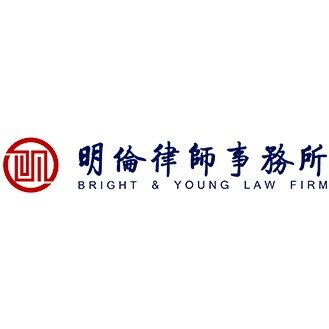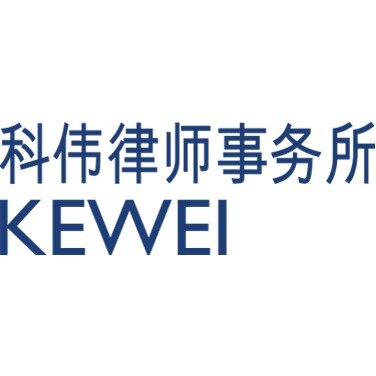Best Project Finance Lawyers in Shanghai
Share your needs with us, get contacted by law firms.
Free. Takes 2 min.
List of the best lawyers in Shanghai, China
About Project Finance Law in Shanghai, China
Project Finance refers to the funding of long-term infrastructure and industrial projects using a non-recourse or limited recourse financial structure. In Shanghai, a global financial hub and economic center of China, Project Finance transactions often underpin significant developments in infrastructure, energy, real estate, and transportation sectors. This involves multiple parties including project sponsors, lenders, governmental bodies, and other stakeholders, all governed by a mix of international best practices and local laws. Shanghai's open investment environment, its focus on Belt and Road collaborations, and mature legal infrastructure make it a compelling location for large-scale project financing.
Why You May Need a Lawyer
Project Finance transactions are inherently complex, involving intricate contractual arrangements, regulatory approvals, and multiple stakeholders. You may require a lawyer in situations such as:
- Structuring a new infrastructure or energy project that requires large-scale external financing.
- Navigating local regulatory approvals or licenses in Shanghai, which may differ from other jurisdictions in China.
- Drafting or reviewing finance documents and security agreements.
- Mitigating or managing risks related to cross-border financing, foreign exchange restrictions, or public-private partnerships.
- Handling disputes during project construction or operation.
- Ensuring compliance with Chinese and international anti-corruption regulations.
- Negotiating loan terms with local or international banks.
- Resolving issues related to land use rights or property title in Shanghai.
- Facilitating joint ventures or consortium agreements with domestic or foreign partners.
- Restructuring or refinancing existing project finance arrangements.
Local Laws Overview
Shanghai's legal framework for Project Finance is shaped by a combination of national legislation, municipal regulations, and international standards. Key aspects to consider include:
- Foreign Investment Laws: The Foreign Investment Law of the People's Republic of China encourages foreign capital while specifying approval requirements, especially for sectors linked to national security or public interest.
- Company Laws: The Company Law of China outlines corporate structures, governance, and liability, essential for entities involved in project financing.
- Contract Law and Civil Code: Governs the making and enforcement of financing and security agreements between parties.
- Financial Regulations: The People’s Bank of China and China Banking and Insurance Regulatory Commission oversee financing activities, especially in relation to banking, loans, and cross-border fund flows.
- Land and Real Estate Laws: Land use rights in China are subject to lease rather than ownership, and require proper due diligence in project structuring.
- PPP Regulations: Public-Private Partnership arrangements have additional layers of approval and compliance, especially when state-owned entities are involved.
- Environmental and Energy Regulations: Environmental Impact Assessment and sector-specific regulations play a major role in project approval and operation.
- Dispute Resolution: The Shanghai courts and arbitration bodies like the Shanghai International Economic and Trade Arbitration Commission (SHIAC) handle disputes involving project finance transactions, with support for mediation and arbitration.
Frequently Asked Questions
What is Project Finance, and how is it used in Shanghai?
Project Finance is a method of funding projects where lenders mainly rely on the project's future cash flows for repayment, rather than the balance sheets of project sponsors. In Shanghai, it’s often used for large infrastructure, energy, real estate, or public service projects.
Can foreign investors participate in Project Finance in Shanghai?
Yes, foreign investors are permitted to participate, subject to industry-specific restrictions and national security requirements. Shanghai welcomes foreign investment, especially in sectors aligned with its economic development plans.
What approval or registration is required for Project Finance transactions in Shanghai?
Projects may require approvals from local government bodies, environmental agencies, and, in the case of foreign currency loans, from the State Administration of Foreign Exchange. Sector-specific permits are also commonly required.
Are there restrictions on repatriation of profits or capital for foreign sponsors?
While capital and profit repatriation is allowed, it is subject to foreign exchange regulations, tax clearance, and sometimes regulatory review to ensure compliance with Chinese laws.
How are risks typically allocated in Project Finance deals in Shanghai?
Risks such as construction, operational, market, and political risk are allocated and managed through a suite of contracts, insurance, guarantees, and, when possible, government support agreements.
Can project assets be used as collateral for loans?
Yes, project assets can often be pledged as security for financing. This includes land use rights, project contracts, receivables, and equipment, subject to correct registration and compliance with local laws.
Is arbitration available for resolving disputes?
Yes, arbitration is widely used, with recognized institutions such as the Shanghai International Economic and Trade Arbitration Commission. Parties may also use other domestic or international arbitration venues as agreed.
What is involved in a Public-Private Partnership (PPP) in Shanghai?
PPP projects require extensive vetting and approval, a transparent bidding process, and clearly defined contractual rights and obligations. Legal counsel is crucial for managing government relations and ensuring compliance.
What taxes apply to Project Finance transactions?
Applicable taxes may include Value Added Tax, Corporate Income Tax, and stamp duty on certain transactions. Local and national tax incentives may apply, especially for infrastructure and green projects.
How can legal due diligence help a Project Finance transaction?
Thorough due diligence uncovers legal, regulatory, and financial risks, ensures compliance, and helps in structuring a viable, bankable project to secure lender and investor confidence.
Additional Resources
Individuals or companies seeking guidance on Project Finance in Shanghai may find these organizations helpful:
- Shanghai Municipal Development and Reform Commission (DRC): Oversees infrastructure development and PPP approvals.
- People’s Bank of China - Shanghai Head Office: Regulates financial and banking activity.
- Shanghai International Economic and Trade Arbitration Commission (SHIAC): Provides dispute resolution services for project finance cases.
- Shanghai Finance Bureau: Handles local financial policies and support for major projects.
- National Development and Reform Commission (NDRC): For major or cross-regional projects involving central approvals.
- China Banking and Insurance Regulatory Commission (CBIRC): Supervises banks and insurance companies active in the project finance sector.
- Legal service providers and international law firms: Many are located in Shanghai’s financial districts and have expertise in project finance.
Next Steps
If you are considering or already engaged in a Project Finance transaction in Shanghai, consider these steps:
- Identify and engage a qualified lawyer or law firm experienced in Project Finance and familiar with Shanghai’s regulatory landscape.
- Prepare relevant documents and project information, such as business plans, financial models, licenses, corporate structures, and contracts.
- Arrange an initial consultation to outline your project financing needs and legal requirements.
- Work with your legal adviser to conduct due diligence, assess regulatory hurdles, and structure the transaction for both compliance and commercial viability.
- Stay proactive with ongoing legal support during negotiations, project execution, and post-financing phases to manage risks and resolve any disputes that may arise.
Lawzana helps you find the best lawyers and law firms in Shanghai through a curated and pre-screened list of qualified legal professionals. Our platform offers rankings and detailed profiles of attorneys and law firms, allowing you to compare based on practice areas, including Project Finance, experience, and client feedback.
Each profile includes a description of the firm's areas of practice, client reviews, team members and partners, year of establishment, spoken languages, office locations, contact information, social media presence, and any published articles or resources. Most firms on our platform speak English and are experienced in both local and international legal matters.
Get a quote from top-rated law firms in Shanghai, China — quickly, securely, and without unnecessary hassle.
Disclaimer:
The information provided on this page is for general informational purposes only and does not constitute legal advice. While we strive to ensure the accuracy and relevance of the content, legal information may change over time, and interpretations of the law can vary. You should always consult with a qualified legal professional for advice specific to your situation.
We disclaim all liability for actions taken or not taken based on the content of this page. If you believe any information is incorrect or outdated, please contact us, and we will review and update it where appropriate.

















